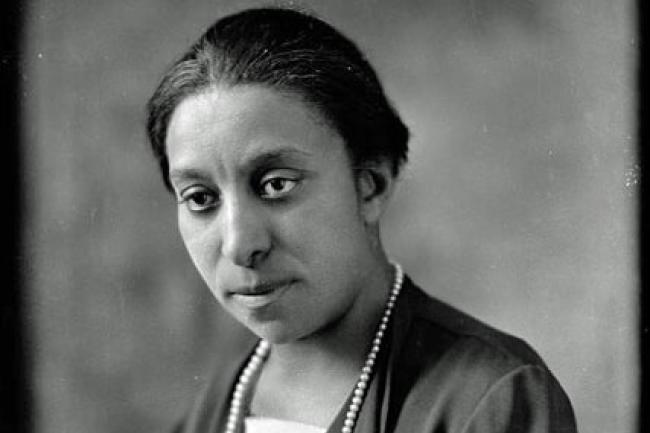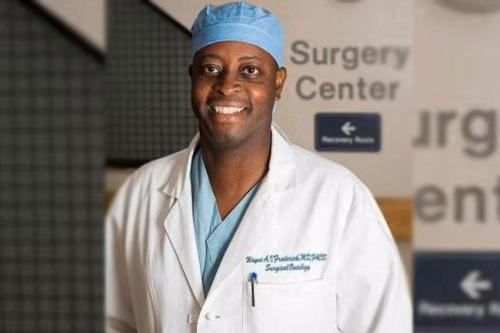During Women’s History Month, we recognize women who were trailblazers, especially those individuals whose contributions are under-acknowledged, undervalued and underappreciated.
Female trailblazers often fall into one of two categories: “You have set yourself apart from others [by doing] something that has not been done before,” says Ravi Perry, Ph.D., chair of the political science department and an advocate for LGBTQ students on campus. “Or, when it comes to sexual identity and identity expression, you [choose] to live your life openly in an era in which that was obviously unwelcome and will bring a lot of threat to you. Just being open is trailblazing enough.”
At Howard, numerous women have left legendary imprints for the benefit of women and the LGBTQ community. According to Perry, when we think about these women, we should delve deep into our history while also examining our more recent past.
“We have to remember our historical figures because we need to always be mindful of the shoulders that we stand on,” Perry says. “But there are more contemporary folks at Howard, women, leaders on LGBTQ matters in the past 20-30 years that I think is also important to acknowledge. It’s important that we include not only those legends, but others who have trailblazed in their own way here on campus, and we should honor them too.”
The women featured here not only had to overcome discrimination based on gender, but also based on race – and, in many instances, based on sexual orientation.
“These are women who have gone into the history books, not only or not even primarily because of their sexual identity or orientation, but because of their commitment to community,” Perry says. “That is, of course, the Howard story, that while people may [have different] identities, [we share the purpose of] advancing the Black community.”
When Chi Hughes helped create the Lambda Student Alliance at Howard, it was the first openly LGBTQ student association at any historically Black college and university.
Pauli Murray
Murray was a civil rights lawyer, a writer and poet, an Episcopal priest, and more. Murray also struggled with gender identity, and, today, it is common to use the pronoun “they” to refer to Murray. In their work, Murray cultivated the legal theories that would underpinned the arguments in Brown v. Board of Education that overturned the “separate but equal” doctrine. In their personal life, Murray sought gender-affirming medical care.
Lucy Diggs Slowe
Slowe was an educator as well as an elite athlete. In 1922, she became the University’s first dean of women, where she helped spearhead the creation of female dormitories. Her legacy in the world of education was burnished as she co-founded the Alpha Kappa Alpha Sorority, Incorporated and created the first junior high school in Washington, D.C. for Black students.
She was also an original founder of Alpha Kappa Alpha Sorority, Incorporated. In addition, first Black woman to win a national title in any major sport and became a 17-time American Tennis Association champion. She was also president and a member of the Howard University Women’s Tennis Club.
For much of her life, Slowe lived with a woman, Mary Burrill, who was an English teacher and a playwright. Though they never publicly declared being anything other than roommates in their lifetimes, many now believe that they were in a romantic relationship.
Zora Neal Hurston
Hurston was a prolific fiction and nonfiction writer during the first half of the 20th century and a key representative of New York’s Harlem Renaissance. Particularly in her essays, Hurston’s tone was unapologetic and uncompromising as she sought to examine and chronicle the Black experience in America. Along with other notable writers, including Langston Hughes, Hurston helped to create and contribute content for a literary magazine called Fire!, which incited much controversy for its depictions of homosexuality and prostitution; only one edition of Fire! Was every published. Hurston’s sexual identity is the matter of some debate; she mixed comfortably with the elite Black writers of the time, some of whom were known to be gay, causing many to consider whether she might have been gay as well. Her work was largely underappreciated during her life, and only began to experience a revival and renewed interest beginning in the 1970s, 15 years after her death.
Chi Hughes
In 1979, Hughes co-founded the Lambda Student Alliance at Howard, a precursor of today’s LGBTQ+ undergraduate student organization, CASCADE (the Coalition of Activist Students Celebrating the Acceptance of Diversity and Equality). When Hughes helped create the organization, it was the first openly LGBTQ student association at any historically Black college and university. As an openly gay person at Howard, Hughes has stated that she received backlash, both from the administration and from other students. When the administration initially rejected Lambda’s request for funding and resources, it took the threat of a lawsuit for Lambda to receive the same support as other student organizations. After leaving Howard, Hughes would go on to co-found Sapphire Sapphos, D.C.’s first Black lesbian political, social and cultural group, and become the first African American deputy director of the Los Angeles LGBT Center, among other efforts.
Cheryl Clark
A writer and educator, Clark was born in Washington, D.C. and received her undergraduate degree in English from Howard University in 1969. She would go on to receive post-graduate degrees from Rutgers University, where she taught and also led efforts to advocate for LGBTQ rights on campus. Clark’s most outspoken essays focus on homophobia and sexism experienced within and outside of the Black community. She is deeply imbedded and an influential figure in the feminist and LGBTQ literary scene.
Victoria Kirby York
York has been a powerful advocate for HBCUs to recognize and celebrate the LGBTQ legacies on their campuses. As a student at Howard, she served as a graduate assistant to the Office of the President, a student government member, and a member of BLAGOSAH (the bisexual, lesbian, allied and gay organization of students at Howard University, which is now known as CASCADE. Her student thesis was titled “Lavender Report,” and it explored the unmet needs of HBCU LGBTQ students for inclusion on their campuses. The Lavender Fund, which provides scholarships to LGBTQ students at Howard, was named as an homage to York’s thesis. She has worked in all levels of government – local, state and federal – including as the deputy director for the Advocacy and Action Department at the National LGBTQ Task Force, to further her activism.





